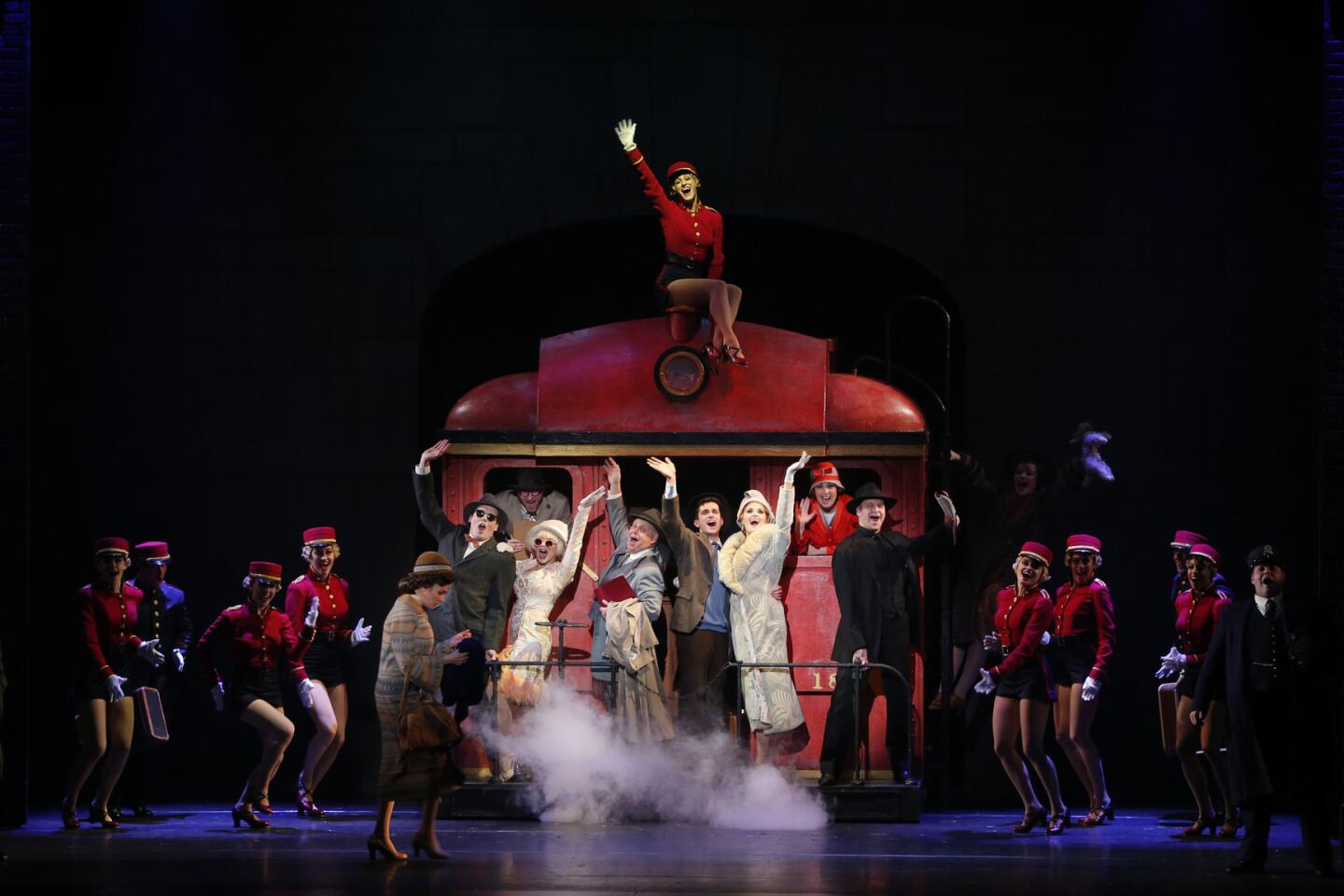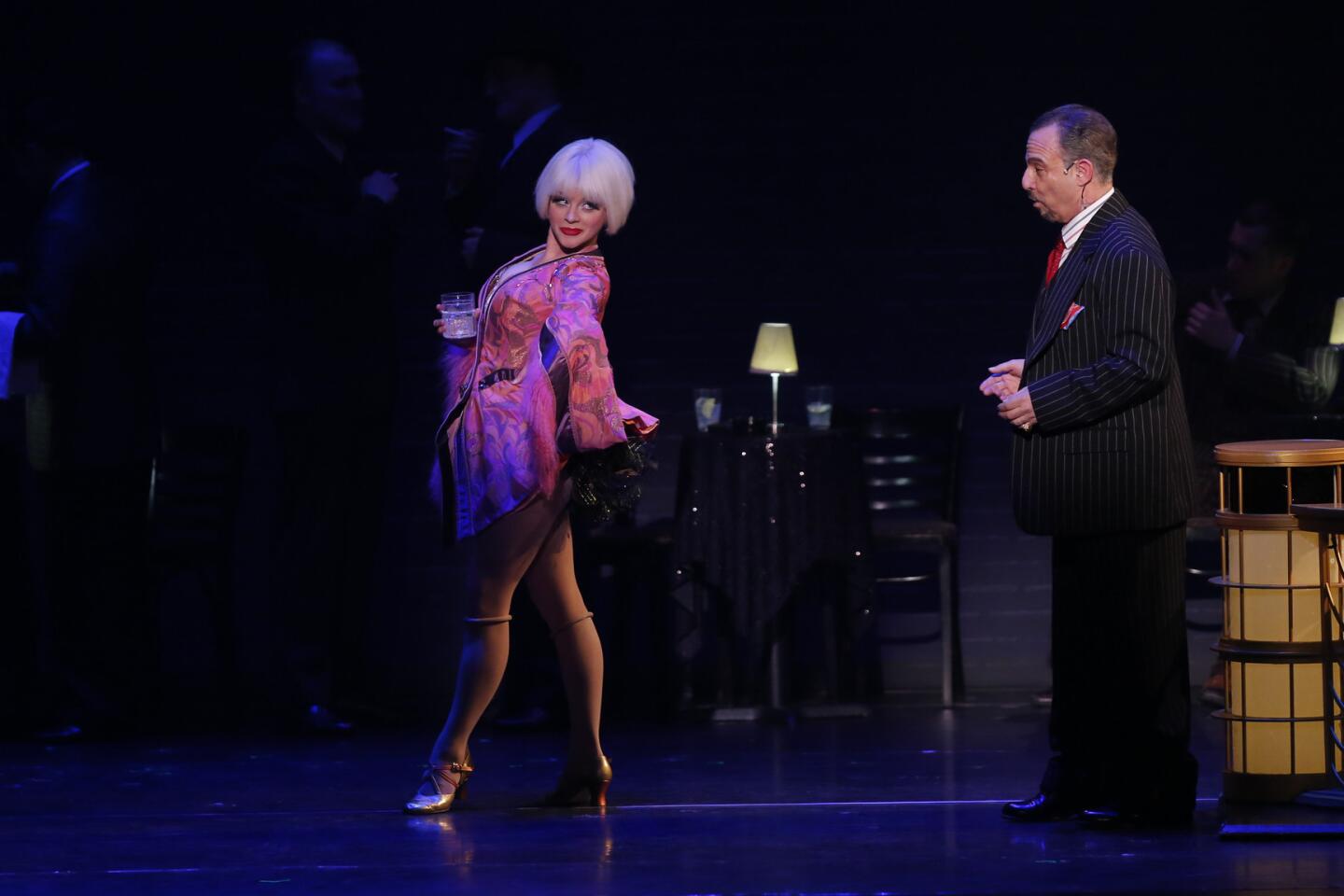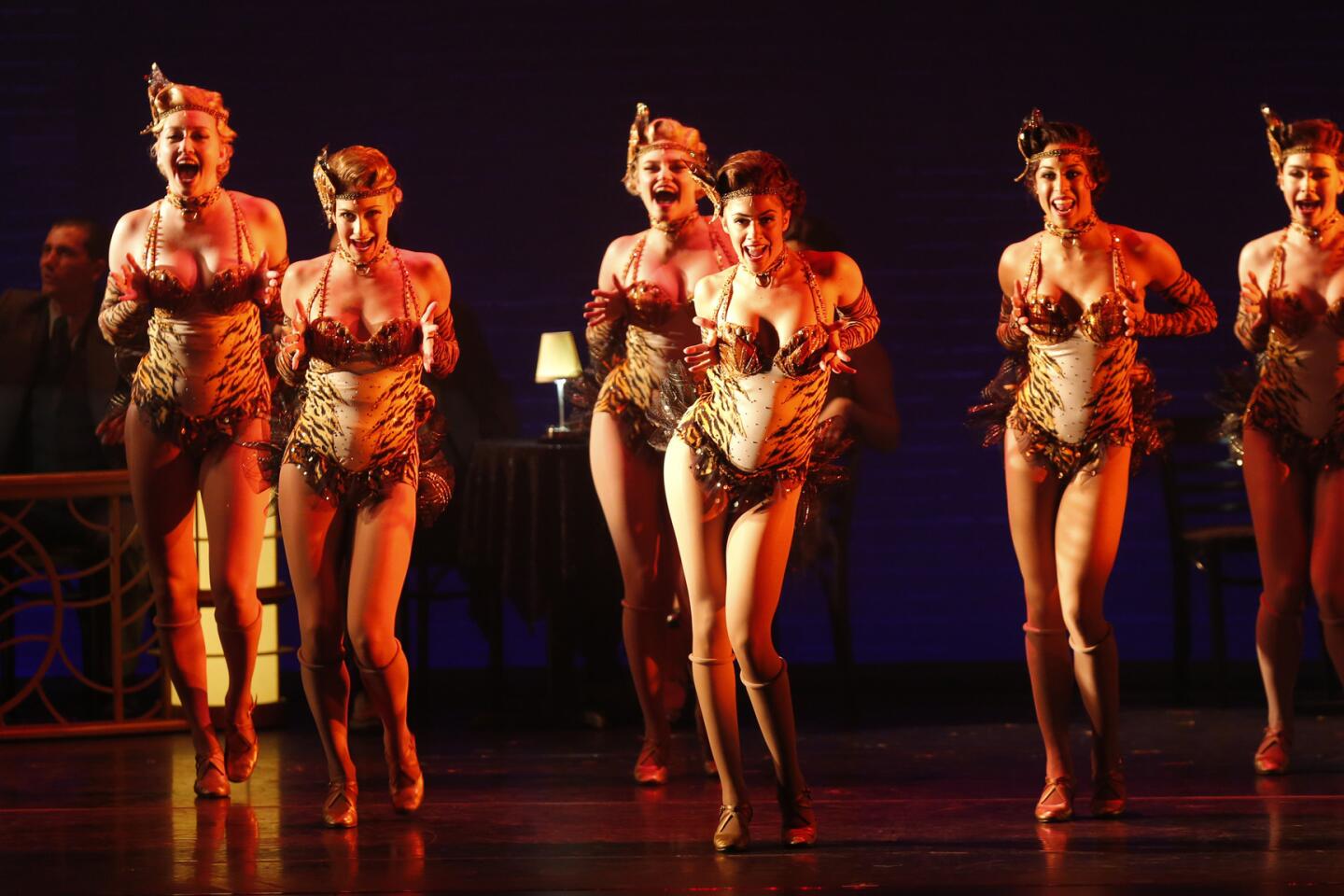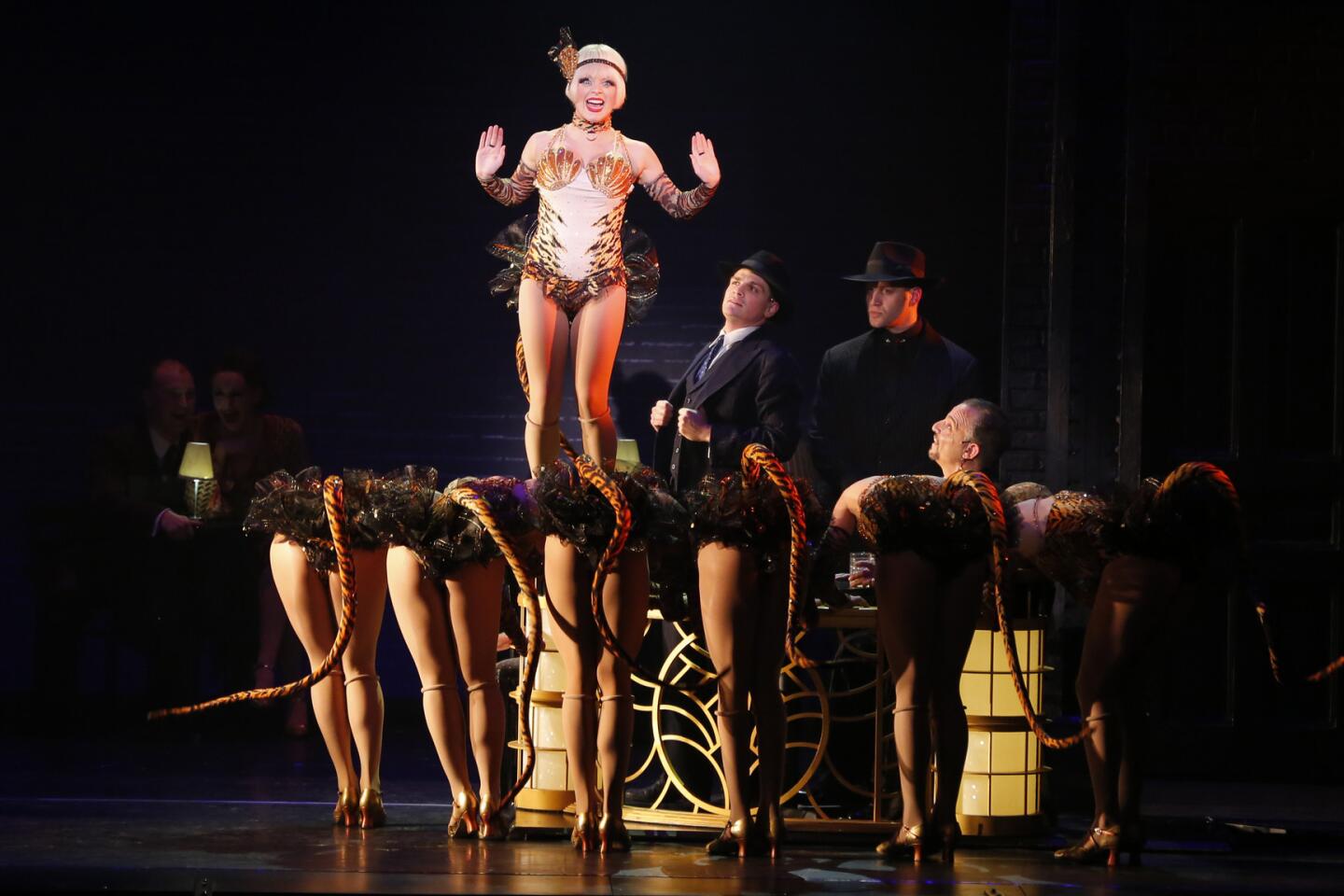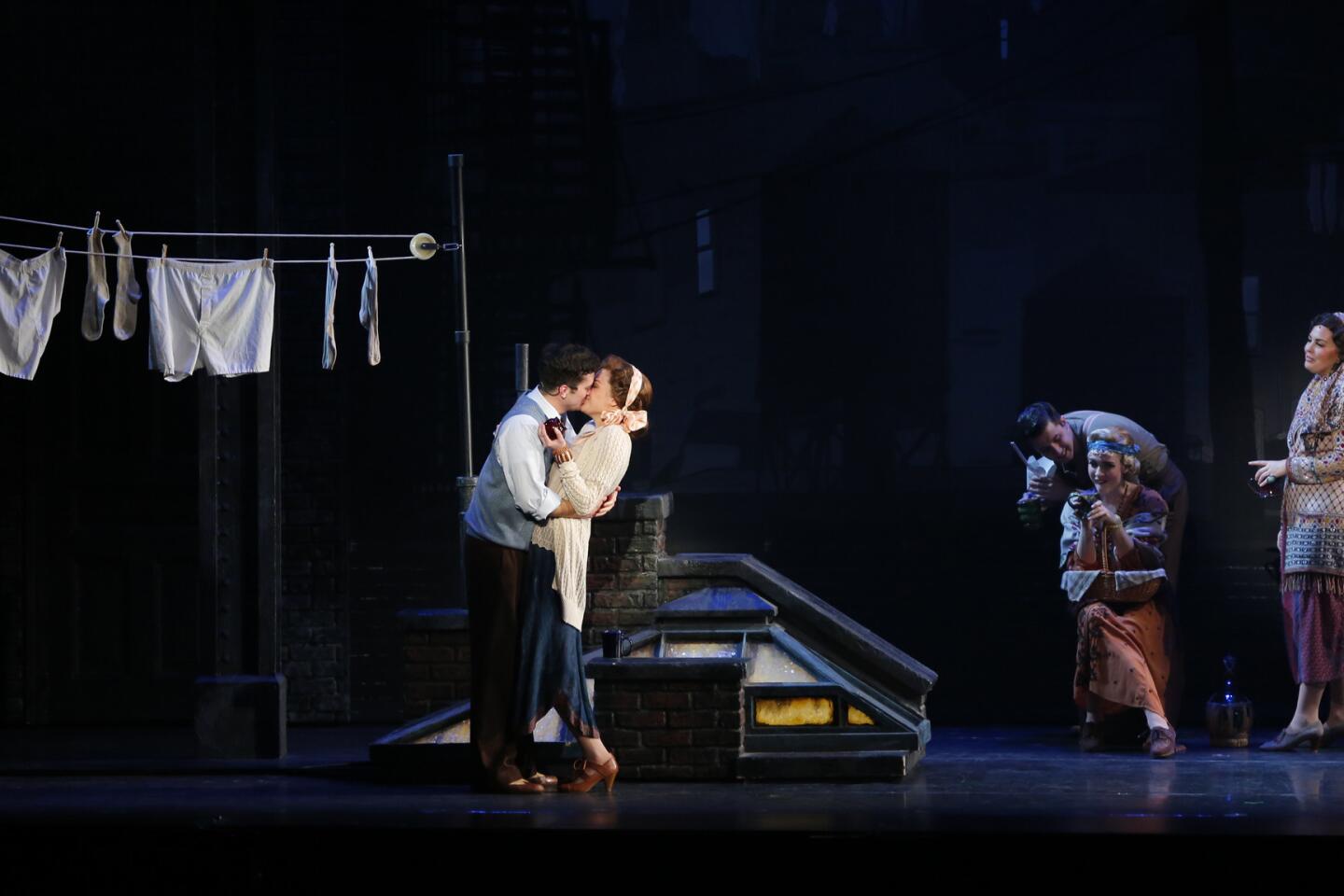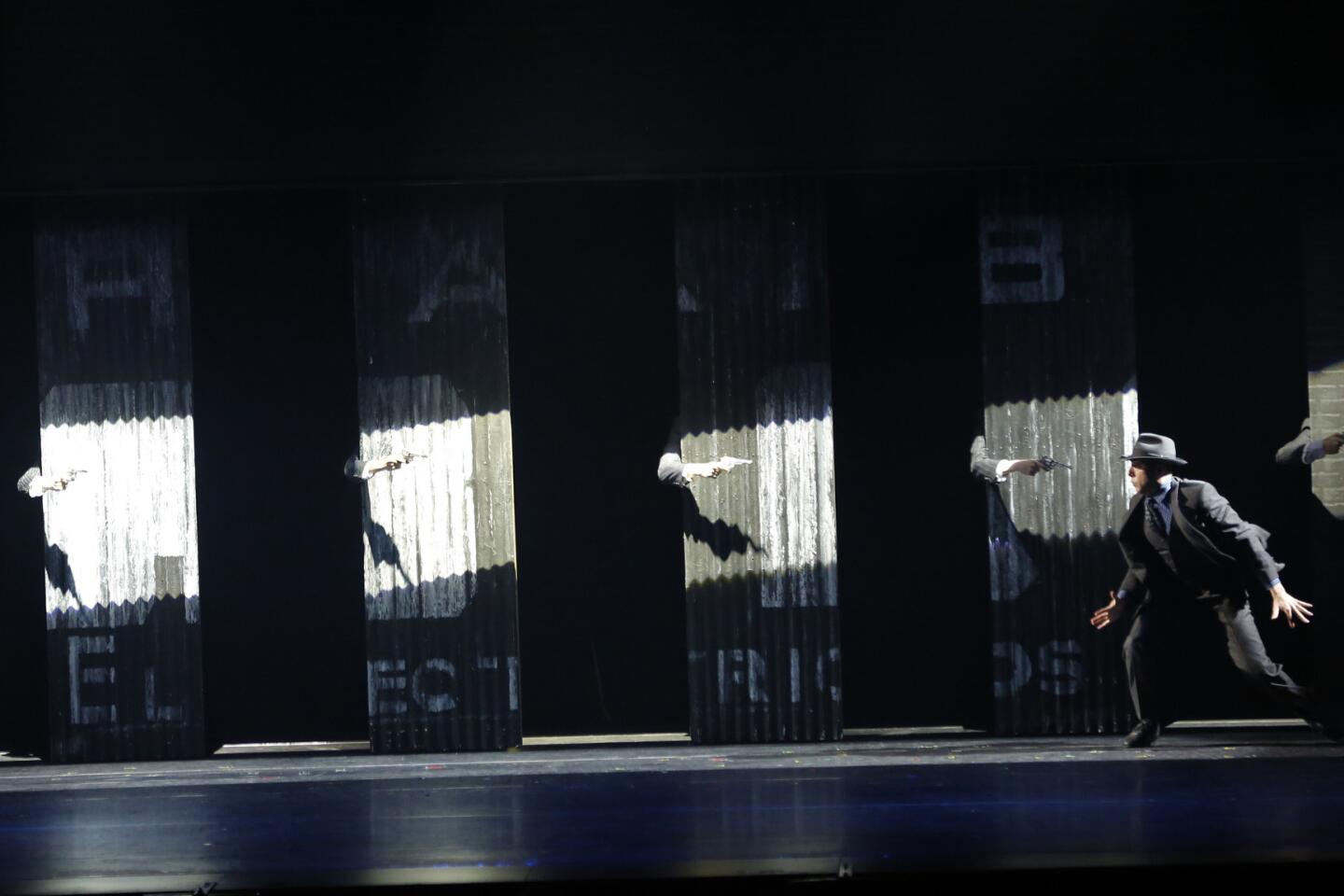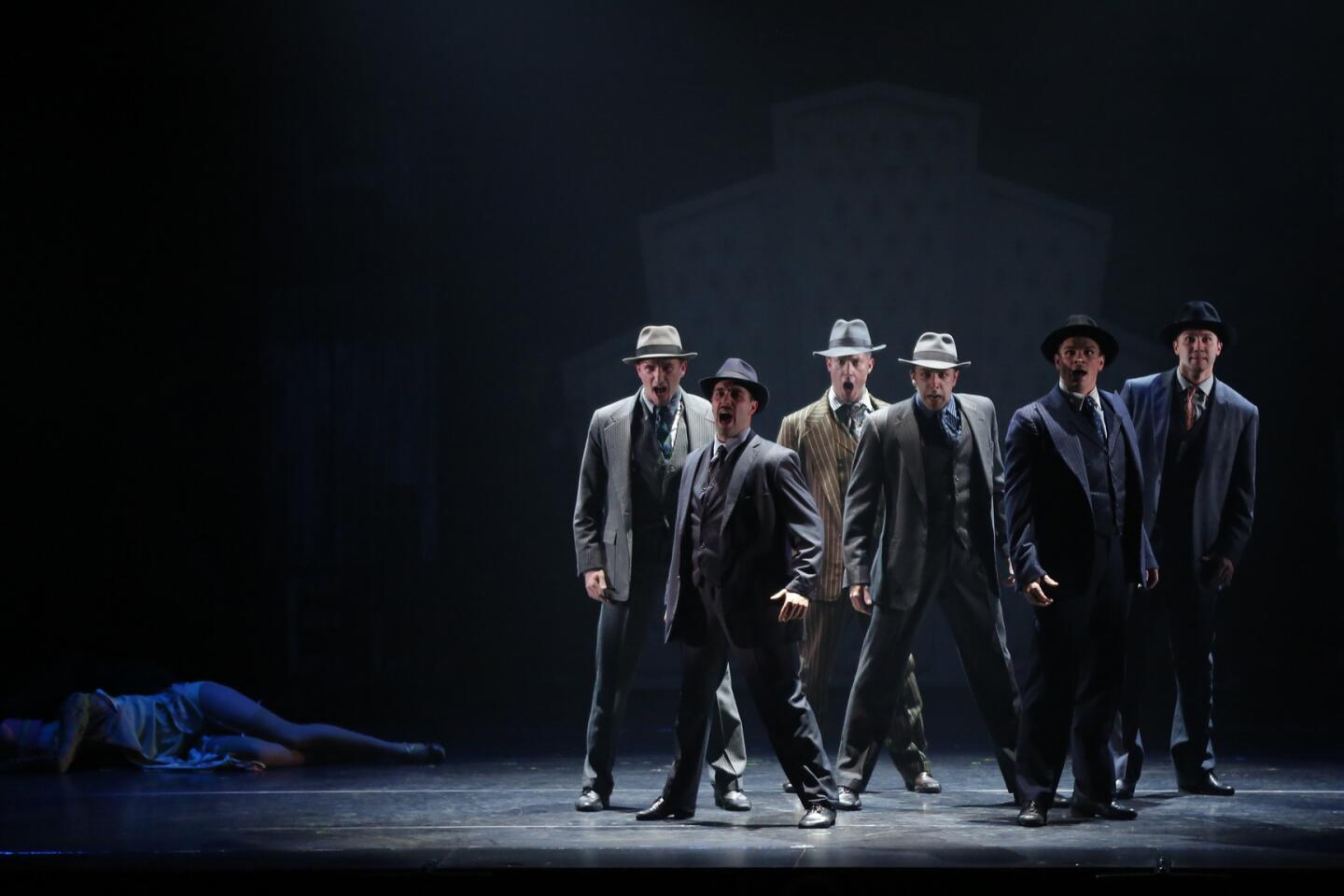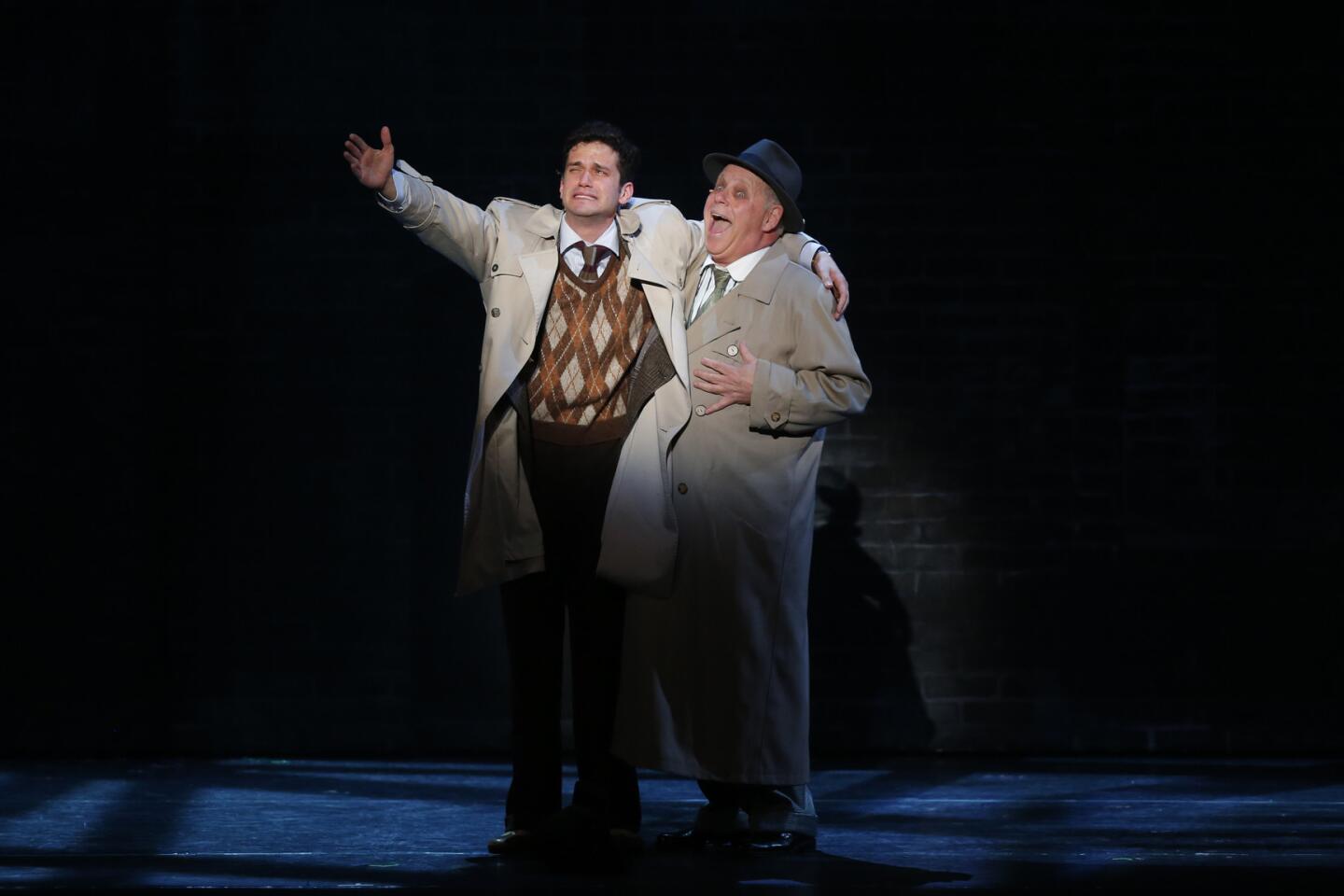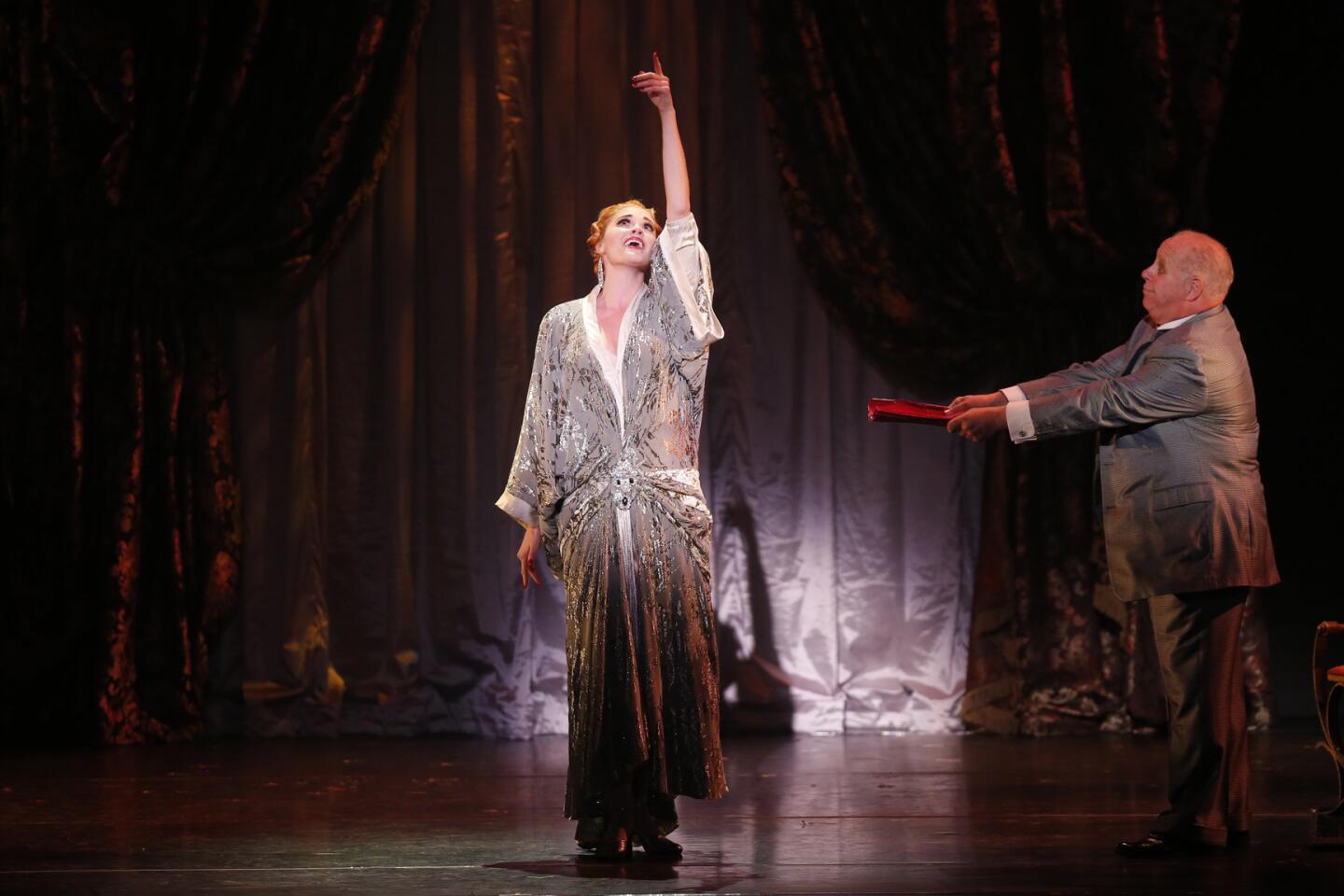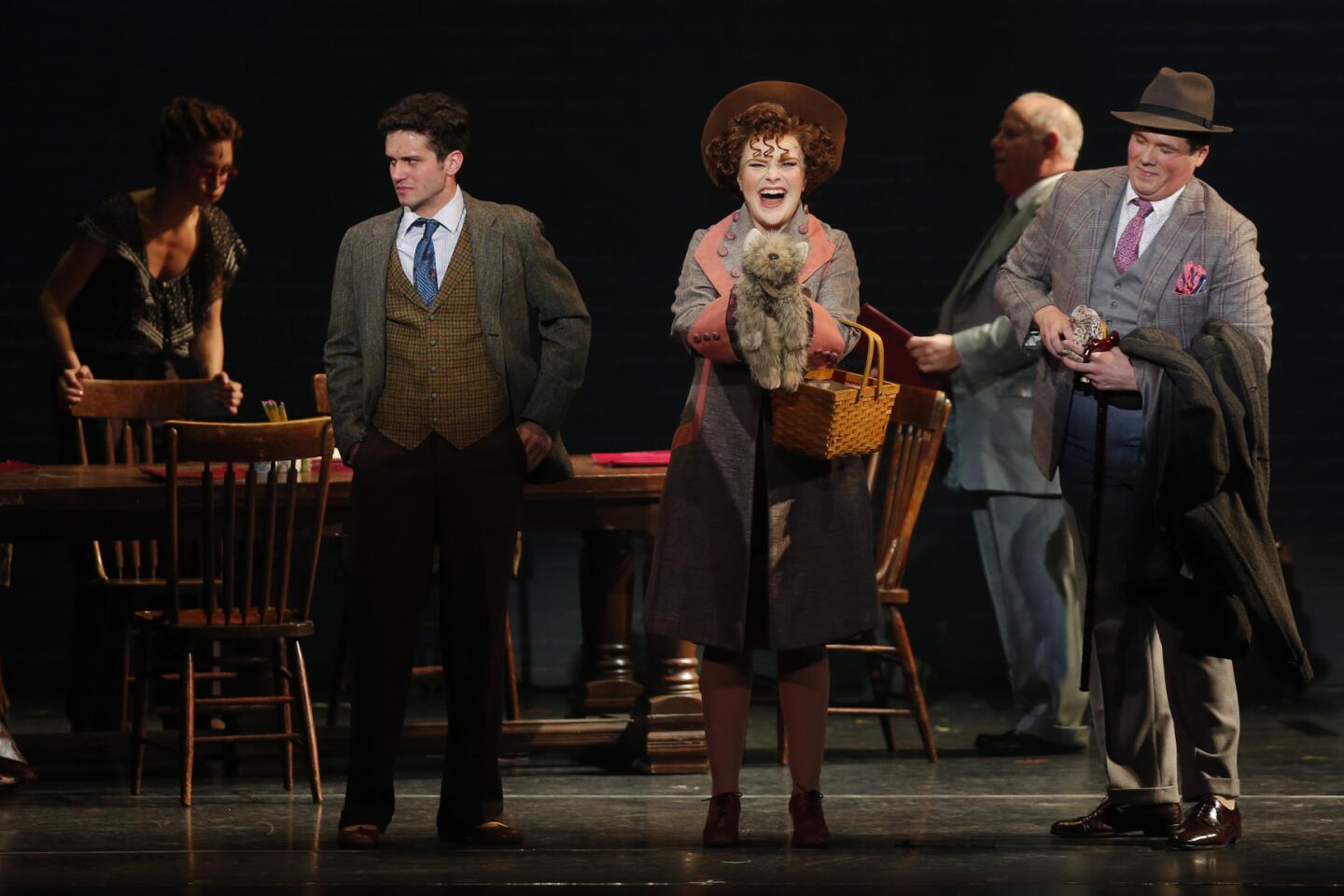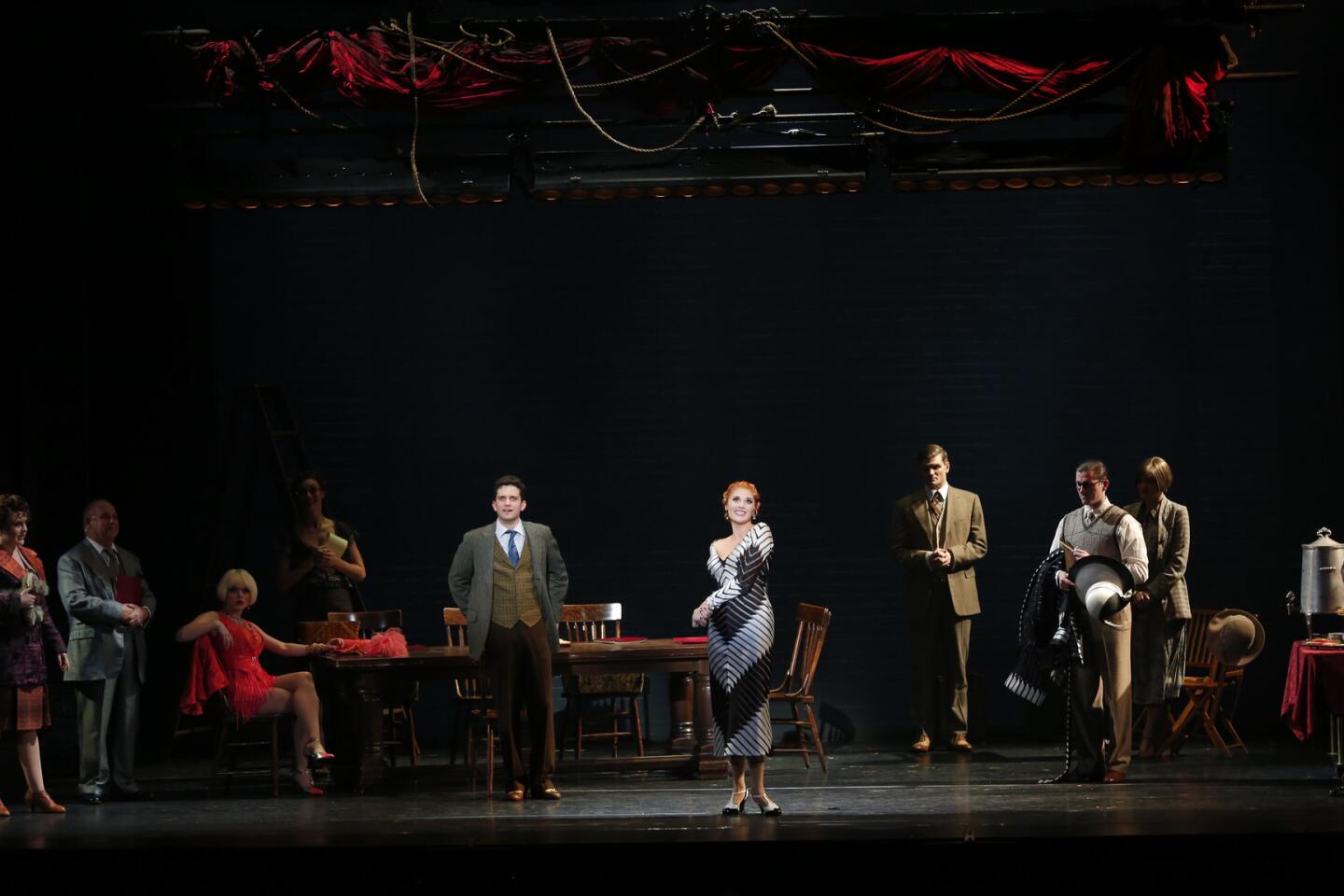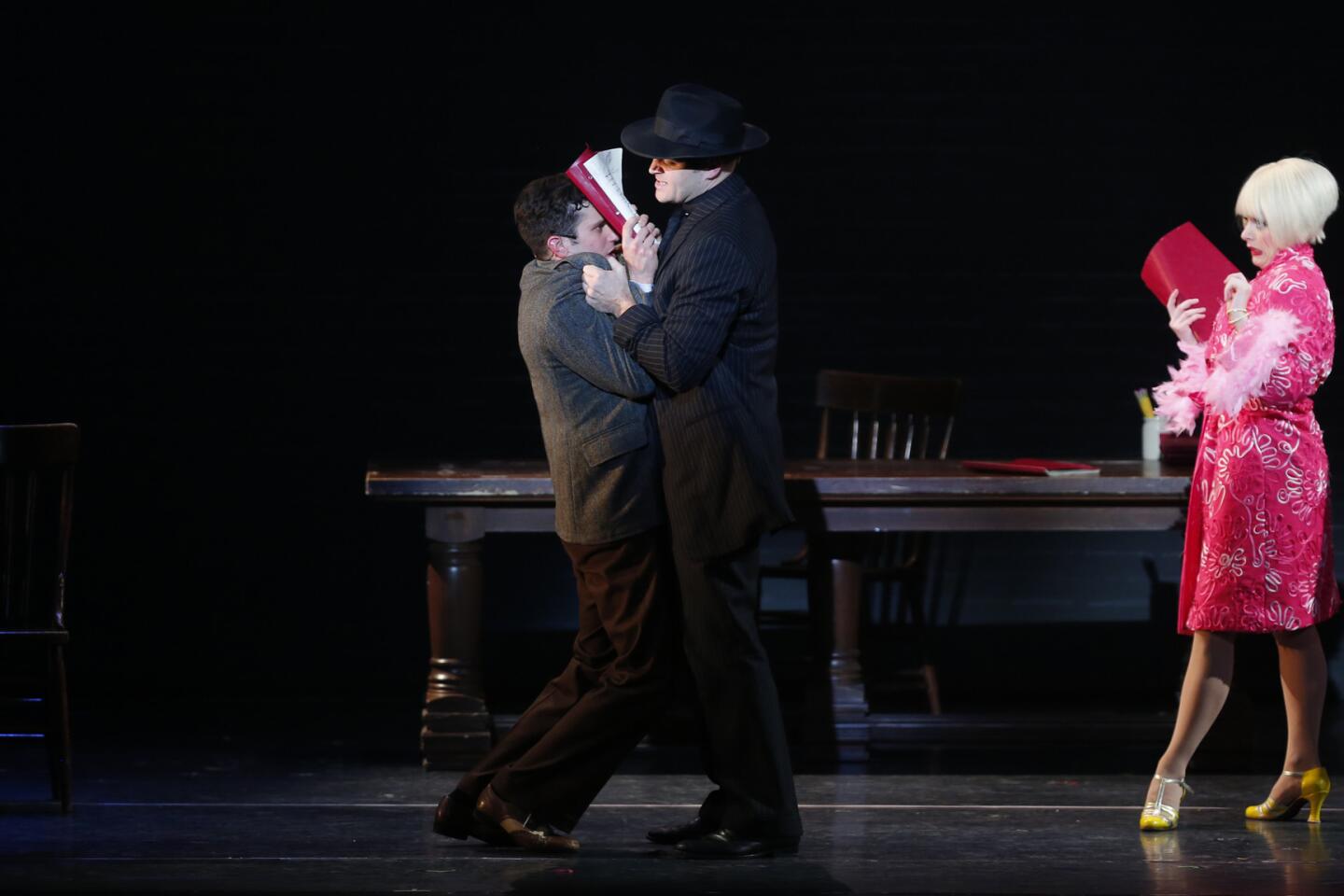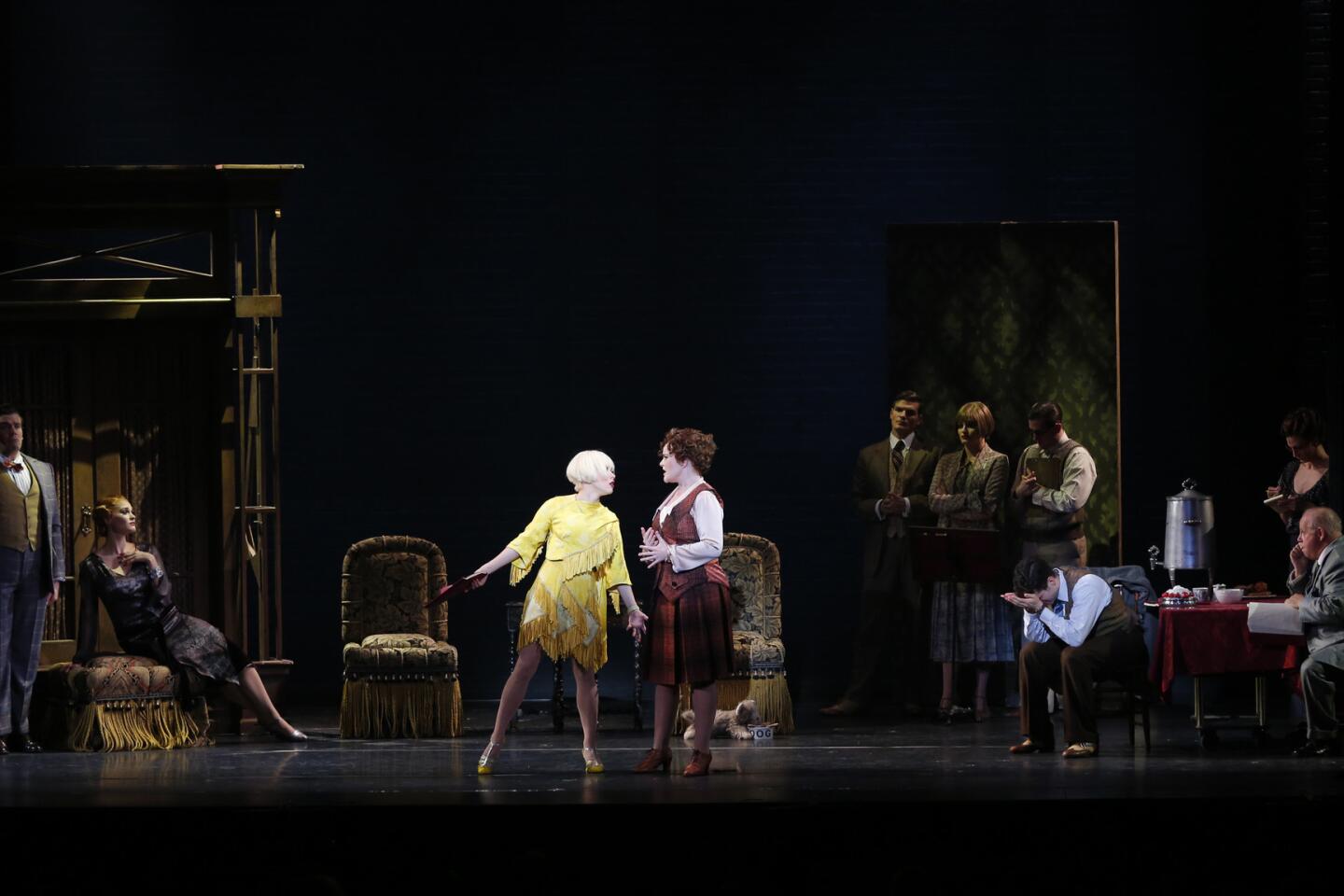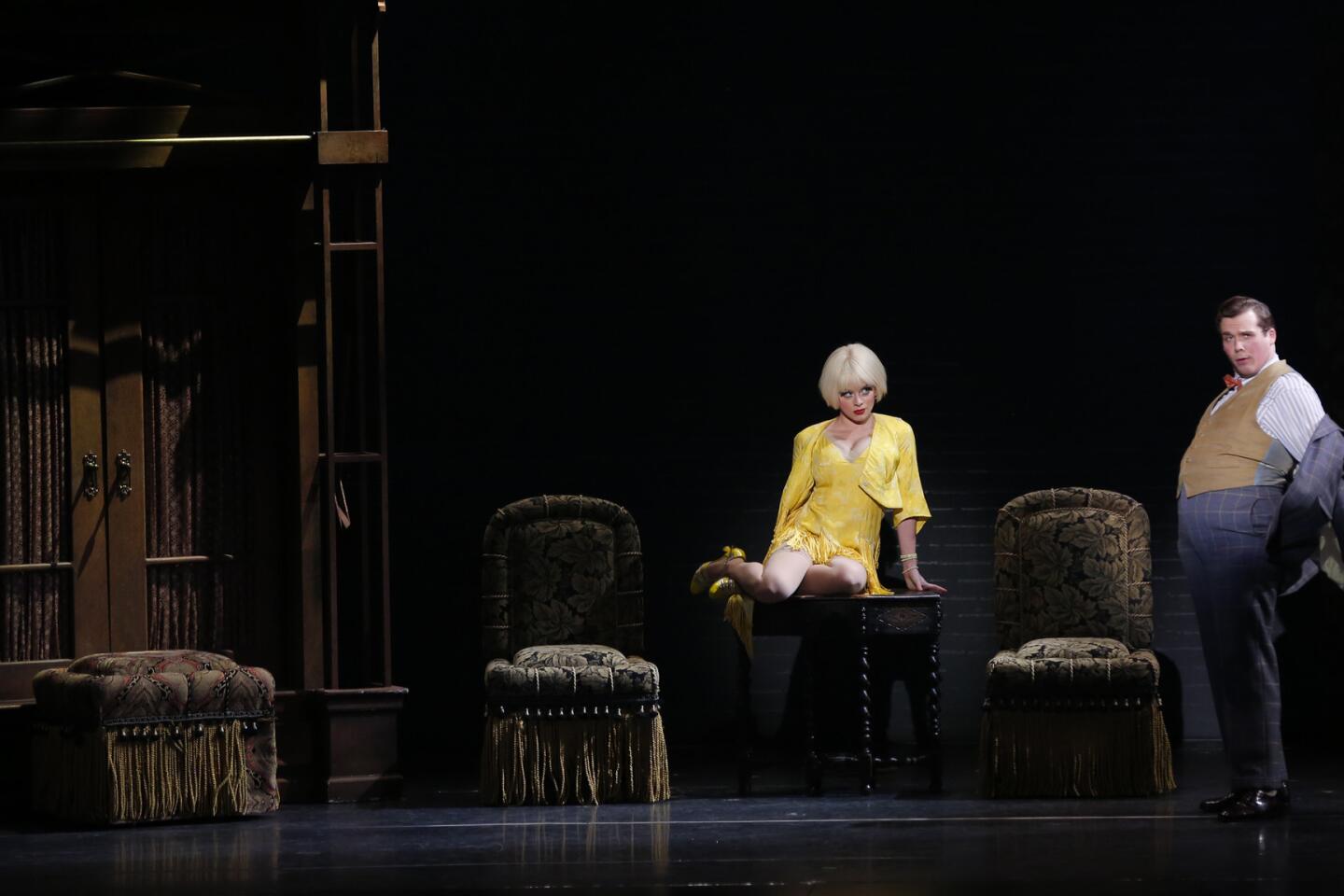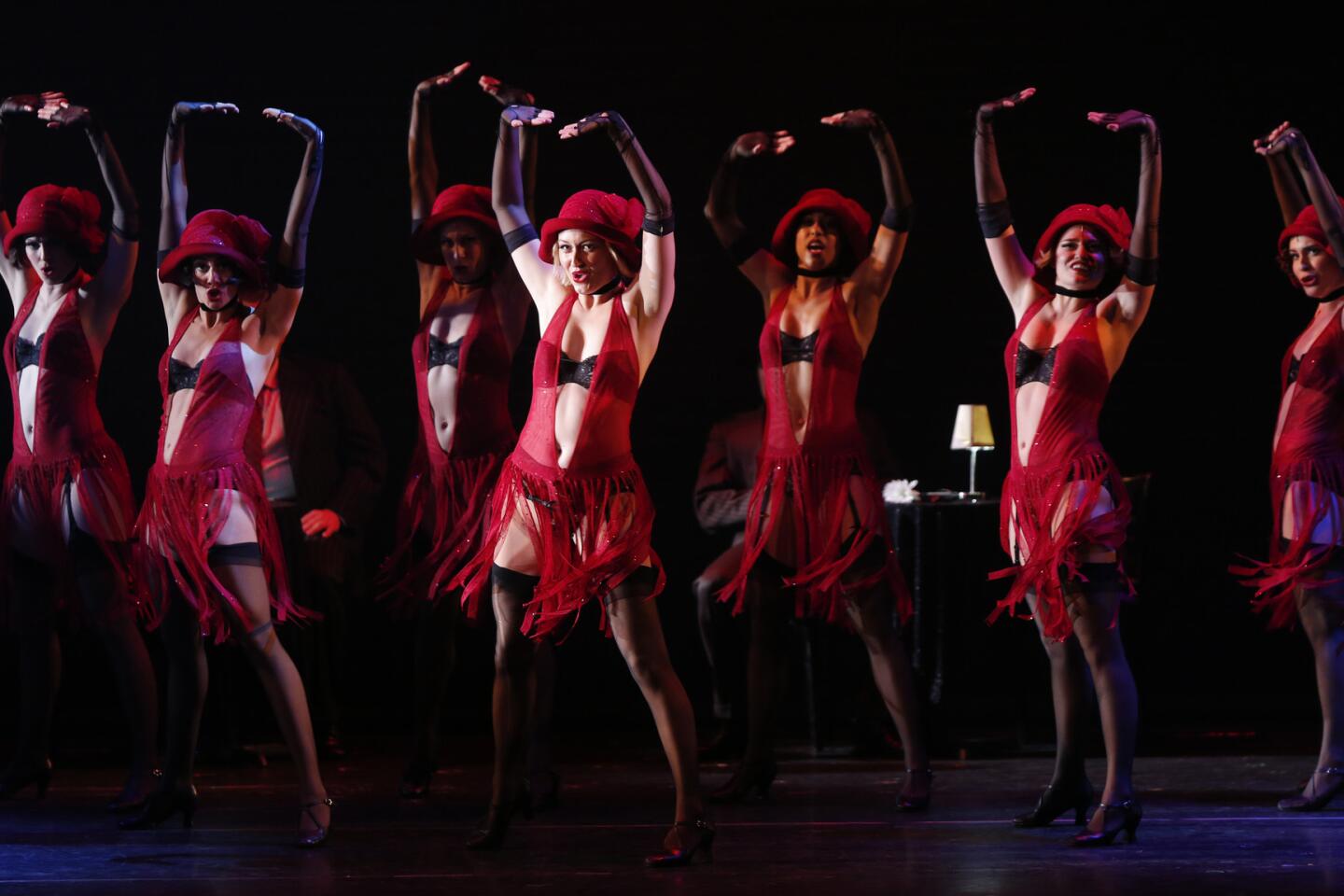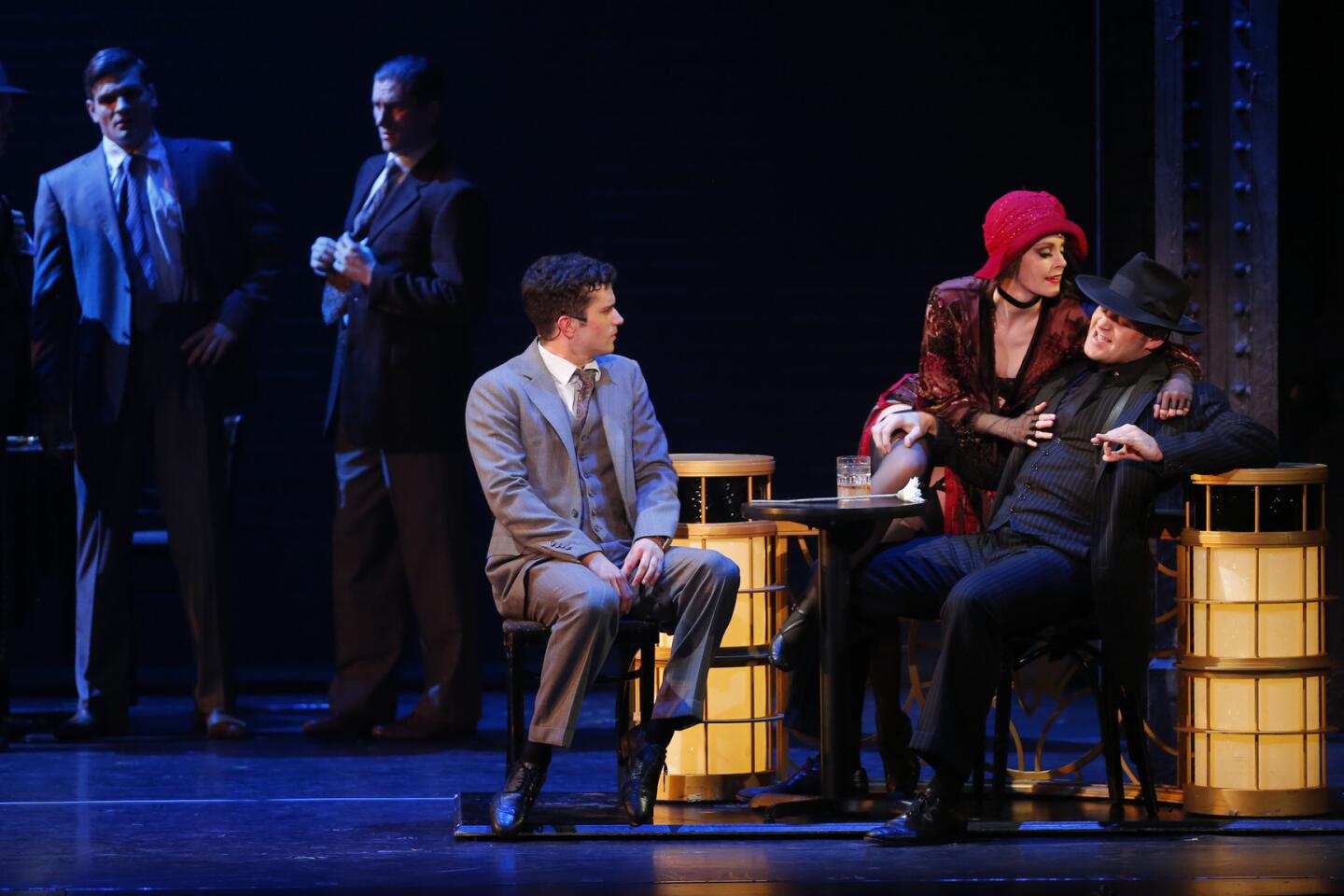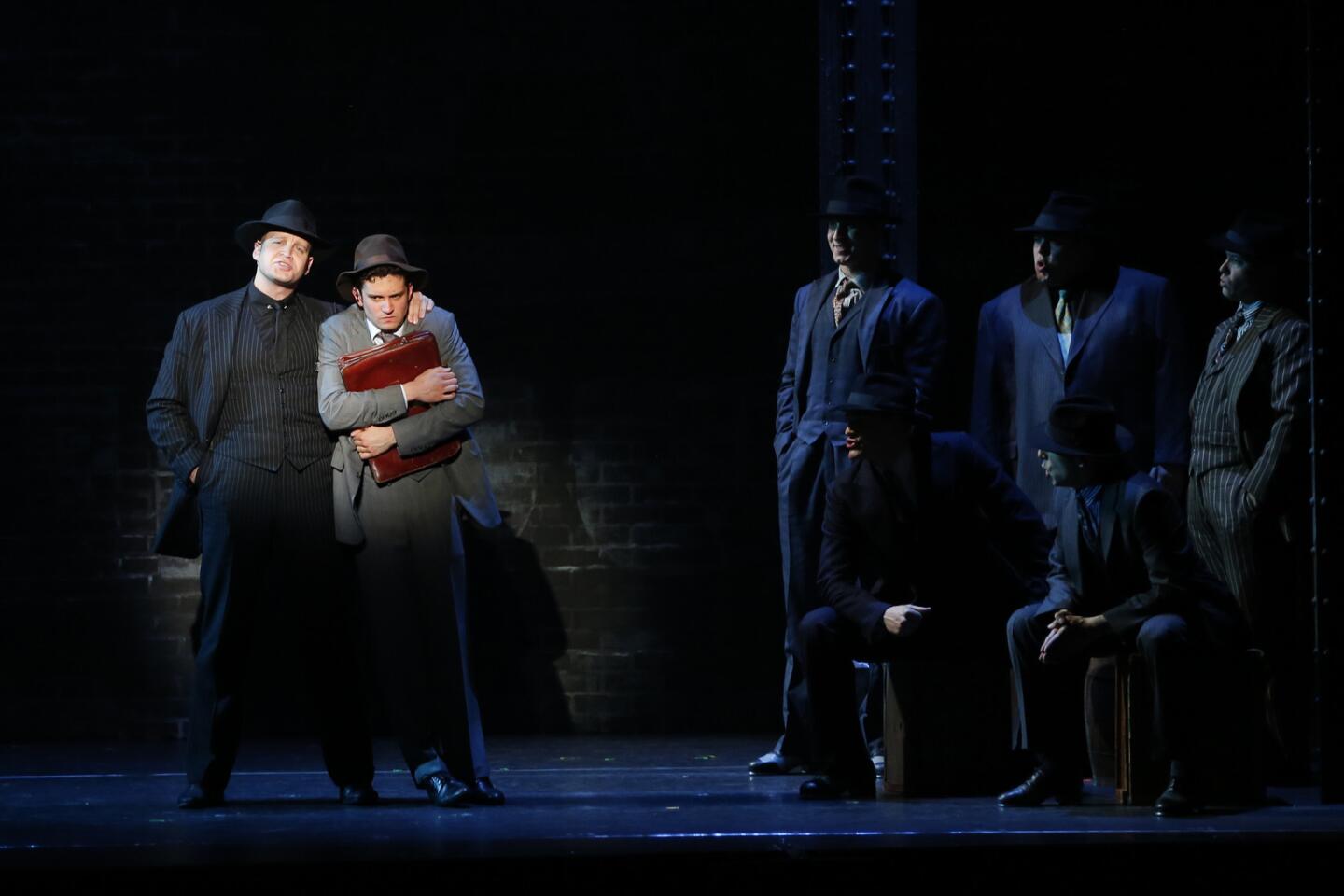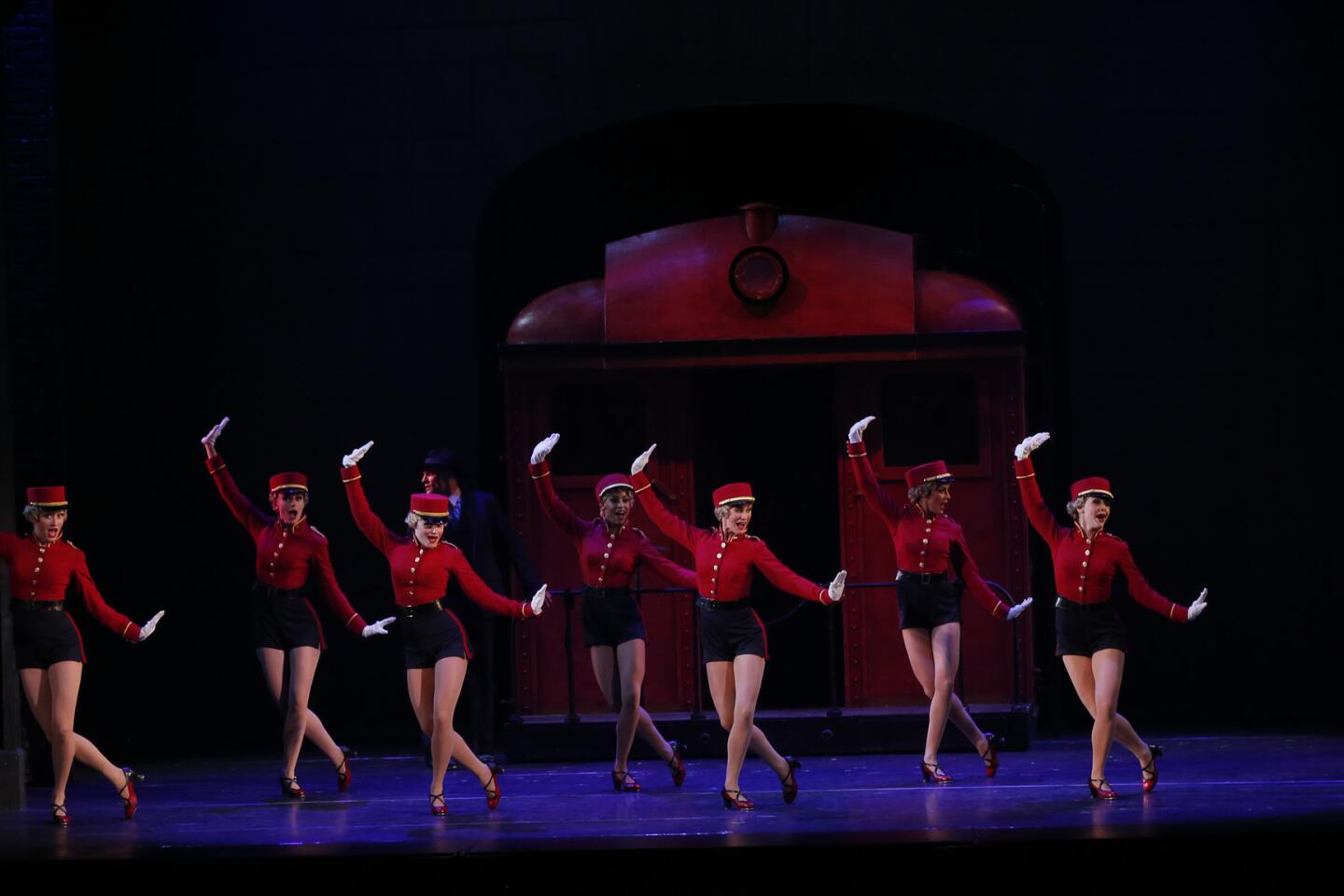Review: ‘Bullets Over Broadway’ makes up for its lack of new music with strong choreography and acting
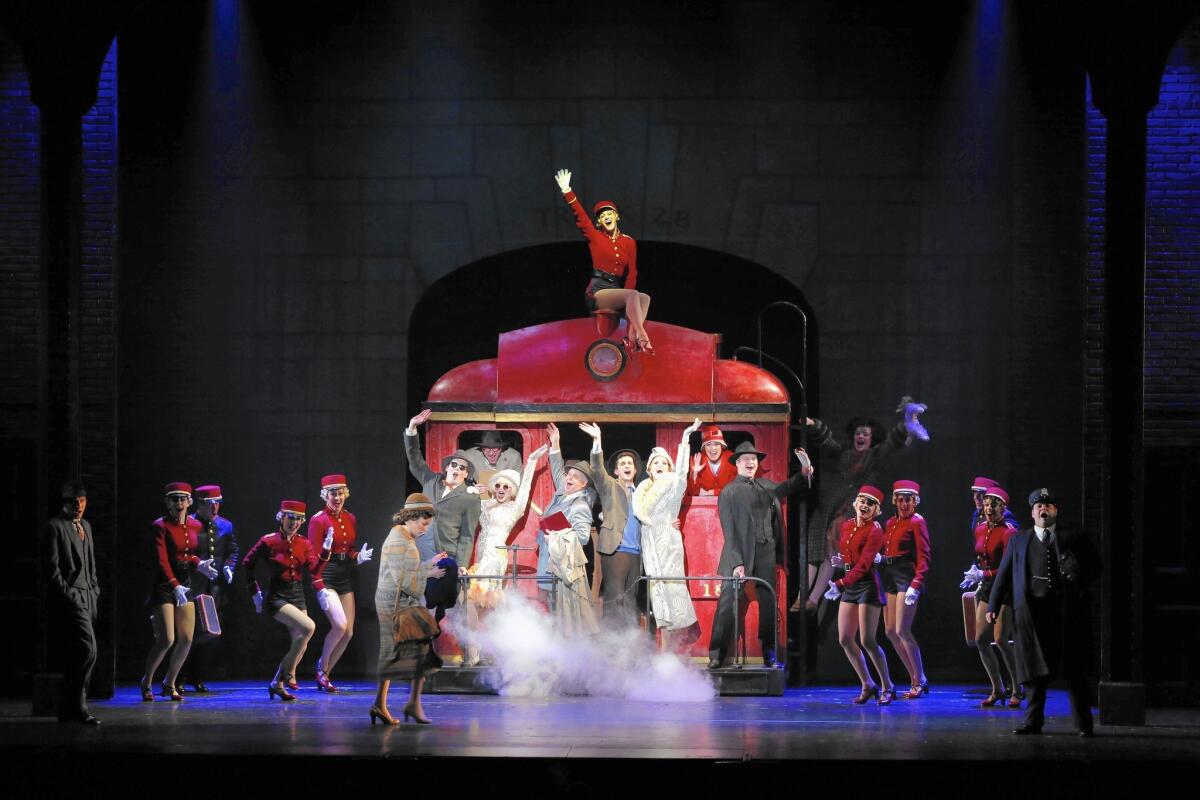
- Share via
How seriously do you take your art? Would you kill for it? Literally?
Those are the questions that animate “Bullets Over Broadway,” Woody Allen’s delicious cinematic parable about the struggle between creative greatness and human goodness. The backstage thriller, released in 1994, seems tailor-made for Broadway. You’d think the title would have caught producers’ eyes long ago as they trolled Netflix for material.
But it was Allen’s sister, Letty Aronson, who urged the filmmaker to adapt it for the stage. The musical, with a book by Allen and direction and choreography by Susan Stroman (the dazzling talent behind the Broadway blitz “The Producers”), ran on Broadway in 2014 to mixed responses, and it has just arrived at the Hollywood Pantages on a national tour, for which Jeff Whiting and Clare Cook have taken over the direction and choreography, respectively.
See more of Entertainment’s top stories on Facebook >>
Many critics were disappointed by the score, a collection of popular songs from around the 1920s, when the story is set. A few are well-known standards (“Let’s Misbehave”); others will be familiar to aficionados of the era (“I Ain’t Gonna Play No Second Fiddle”). One, “The Hot Dog Song,” is so heavy-handedly salacious that it would seem over-the-top even in the gleefully filthy score of “The Book of Mormon” (though it was really performed back in the 1920s, by the comedy duo Butterbeans & Susie).
A great deal of thought clearly went into choosing these numbers and fitting them into the story. Glen Kelly is credited with the arrangements as well as the clever additional lyrics that patch over narrative gaps. For a moment or two, you may even be able to forget that you’re watching a jukebox musical. But far more often you’ll find yourself evaluating how effectively each song has been recontextualized. “Not bad,” you’ll think. Or, “Meh.”
Meanwhile, the bespoke songs that might have been written — a musical counterpoint to the book’s vivid but imaginary 1920s — haunt these jerry-built selections like vengeful unborn ghosts. We could rent the movie, with its witty script and memorable performances, including the one that won Dianne Wiest an Academy Award. So what’s the point of turning “Bullets” into a musical if not to write music for it?
It wasn’t meant to be, and we have to get over it and focus on the charms of this fizzy, well-executed touring show: choreography, choreography, choreography, costumes and performances, in roughly that order. The dances are so various and witty, so taut and stylish, so effervescently athletic, that they’d be as thrilling to watch (or more so) without the encumbrances of the story. Each character, whether gangster or chorus girl, has a pleasingly distinctive language of movement. Although these were originated by the Broadway cast, the touring cast members inhabit them with great verve, as they do William Ivey Long’s succulent and playful period costumes.
Pretentious playwright David Shayne (the Woody Allen stand-in, played by the likable Michael Williams) lives in Bohemian poverty with his sweet girlfriend, Ellen, who like every girlfriend in musicals is desperate for a wedding ring. In Hannah Rose DeFlumeri’s darling portrayal, the role eventually transcends the cliche.
Producer Julian Marx (Rick Grossman, a spark plug) is interested in doing David’s new play on Broadway but lacks funding. Meanwhile, dimwitted chorus girl Olive Neal (Jemma Jane) has been pestering her gangster sugar daddy, Nick Valenti (Michael Corvino), for a real acting opportunity. Nick offers to pay for David’s play if Olive can have a role in it.
Olive, of course, is terrible. Much of the first act is devoted to exhibiting just how screechy, awkward, charmless and lewd she is, but somehow the Australian newcomer Jane makes these damning affectations darling. Also, she doesn’t seem much worse than the rest of the cast that Julian assembles: the melodramatic over-the-hill diva Helen Sinclair (Emma Stratton, an actress to watch), ditsy leading man Warner Purcell (Bradley Allan Zarr, wonderfully nimble in a succession of ever-larger fat suits) and loopy ingenue Eden Brent (Rachel Bahler), who is overly attached to her dog (a puppet, though it’s not clear whether she knows that).
Allen has an unrivaled talent for grabbing a lame joke by the throat and beating it relentlessly into the ground until it dies and comes back to life as an all-powerful mega-joke that slays the audience. Case in point: Before we meet Warner Purcell, we hear that has a weight problem. At the first rehearsal, he looks slightly portly and is interested in food; with each appearance, his appetite and bulk increase until he has become a human dirigible who pulls chicken legs out of his pockets, snacks on dog biscuits and launches into alarmingly vigorous song-and-dance numbers about lobster. No matter how you disapprove of such a mean-spirited gag — food addiction is not funny! — you may not be able to resist laughing.
I was one of the only people who found Wiest’s Helen Sinclair (“Don’t speak! Don’t speak!”) kind of annoying, but I loved Stratton in the role, even if she is far too young and gorgeous to play over-the-hill. Her Helen drapes herself into languid poses across every backdrop and speaks in a voice throbbing with emotion as she blasts David with her charms in the hope that he’ll rewrite her part.
Unbeknownst to her, meanwhile, David isn’t in charge of rewrites. A murderous thug named Cheech (Jeff Brooks, who steals the show), dispatched by Valenti to babysit oversexed Olive, makes a few well-received suggestions. Soon Cheech is secretly restructuring the whole play and getting dangerously invested in his work. This Faustian bargain impels the plot to an inevitable climax that works less well on the stage than in the film.
Two obvious models for “Bullets” — “Guys and Dolls” and “Kiss Me, Kate” — take place in musical-theater universes where gangsters are naughty but harmless puppies. Allen’s homage occupies a grimmer landscape that allows real death by gunshot beside the Gowanus Canal. Such death is too heavy for this airy souffle of a musical, and the tone never quite recovers. “Sorry about the body in the canal,” the finale seems to be saying, sheepishly throwing up its hands. “For no reason we will now cheerfully perform, ‘Yes, We Have No Bananas.’ ”
It’s a bunt, and while it brings you home, you can’t help wishing Allen and his team had swung for the fences in the bottom of the ninth.
------------
‘Bullets Over Broadway: The Musical’
Where: Hollywood Pantages Theatre, 6233 Hollywood Blvd., Los Angeles
When: 8 p.m. Tuesdays through Fridays, 2 and 8 p.m. Saturdays, 1 and 6:30 p.m. Sundays. Ends Jan. 24.
Tickets: $25 and up
Info: (800) 982-2787, www.HollywoodPantages.com
Running time: 2 hours, 40 minutes
More to Read
The biggest entertainment stories
Get our big stories about Hollywood, film, television, music, arts, culture and more right in your inbox as soon as they publish.
You may occasionally receive promotional content from the Los Angeles Times.
